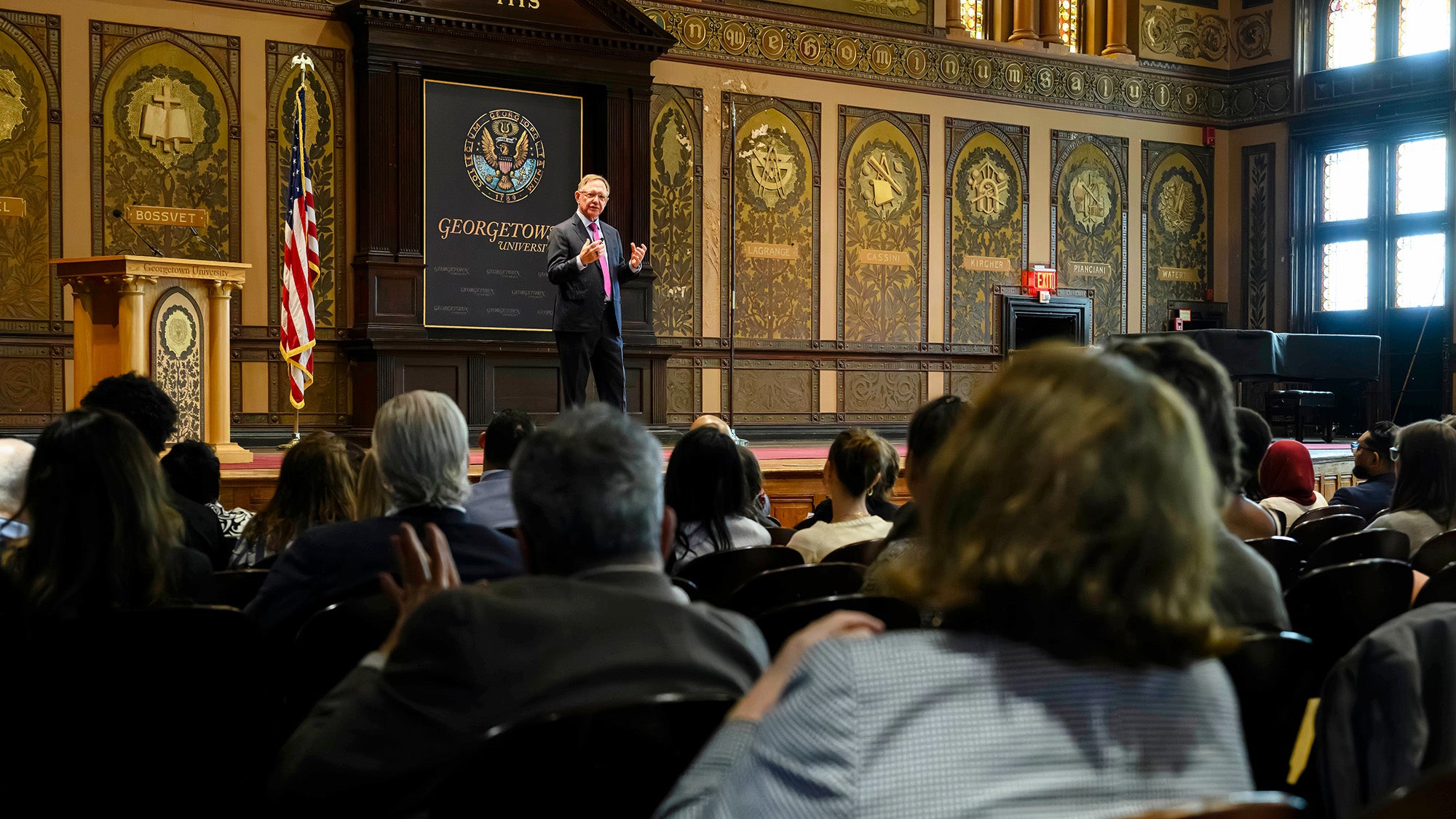Cultivating a ‘Get To’ Mindset, Honoring the Call to Serve
Health Care Leader Encourages Winning Hearts to Help Improve Health Care System
(October 2, 2025) — At a time when U.S. hospitals and health care practices are facing significant financial challenges, Georgetown educators want to ensure that their students feel motivated to embrace a purpose-driven approach to improving the health care system.
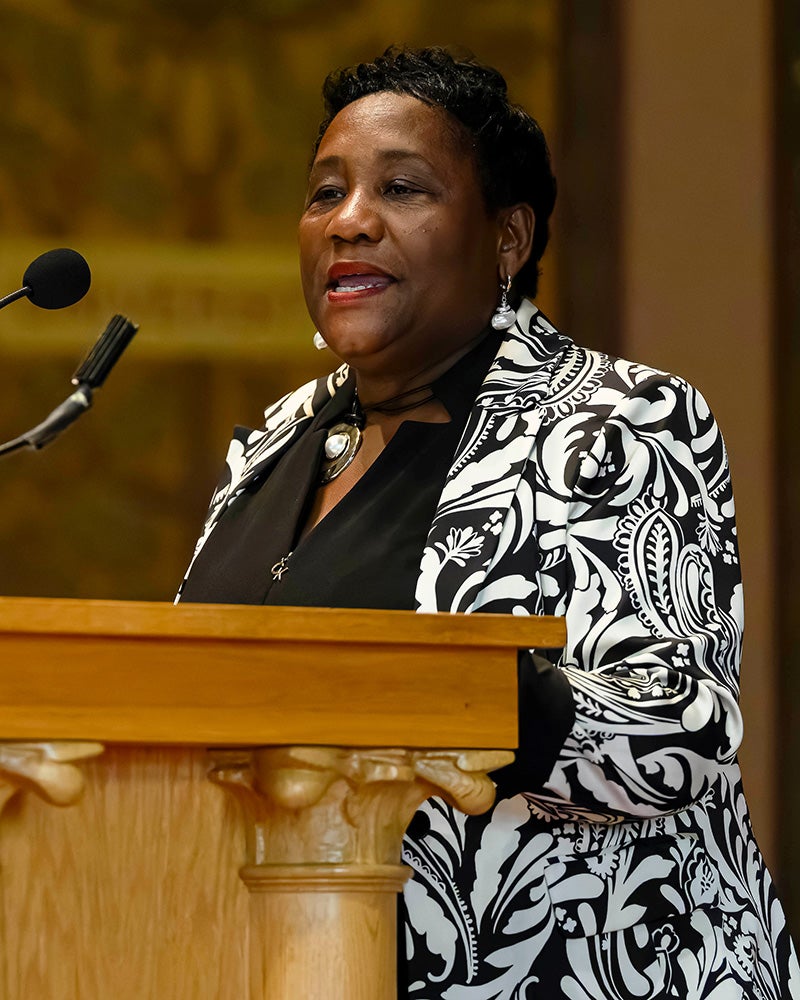
Roberta Waite, EdD, RN, PMHCNS, FAAN
This was at the heart of a lecture delivered September 4 in Gaston Hall by health care leader, author and philanthropist Quint Studer, who challenged attendees to cultivate what he described as a “get to” mindset. The lecture was presented by Georgetown’s Berkley School of Nursing in collaboration with the School of Health and the Business of Health Initiative at McDonough School of Business.
“Mr. Studer’s talk will remind us that by shifting from a mindset of ‘have to’ to one of ‘get to,’ we honor both our professional purpose and our shared humanity,” said Berkley School of Nursing Dean Roberta Waite, EdD, RN, PMHCNS, FAAN, while introducing Studer. “Allow yourself to be inspired, to be challenged, to be renewed.”
Reconnecting to a Purpose
Studer shared a deeply held philosophy that recognizes the positive in people and brings purpose to the work they do to make a difference, recalling that as he rose through the ranks in health care, he lost his connection to the essential need to recognize and reward people.
“I didn’t call people ‘people’ anymore, they were ‘FTEs,’” he said. “We called patients ‘cost per adjusted occupied bed.’ Instead of talking about their illness, we asked about their acuity index.”
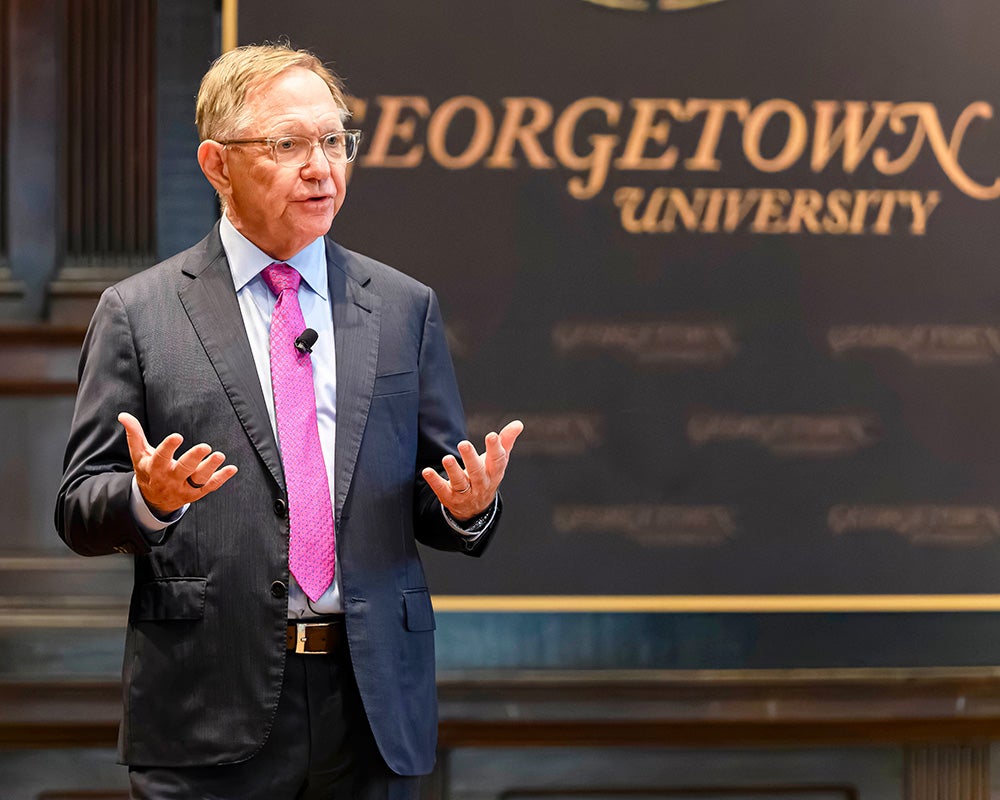
Quint Studer shared how he developed a purpose-driven approach to improving health care.
It was not until Studer became responsible for patient experience that he began developing his purpose-driven approach to improving health care. He studied other industries that were dedicated to providing positive experiences for both their customers and their employees.
“They told me it’s all about the employees,” he said. “They told me to go out on the units and ask the nurses what they need to make this a good place to work. And we started doing that, and doing crazy things like trusting them.
“Are there obstacles?” Studer added. “Yes, but the obstacles create opportunities. Who would have thought having a hearing deficit would make me a good listener, but it did. I have to pay full attention.”
Lessons Learned Young
As a child, Studer was small for his age and had both a hearing deficit and a speech defect. He struggled in his early years, but with the support of two wise, committed teachers, a coach who believed in him and his parents, he overcame these obstacles, first becoming a special education teacher for 10 years before moving to health care, where he “leaned into” his lived experience to become a successful hospital executive.
Studer transformed several hospitals, focusing on management approaches that raised patient satisfaction by improving working conditions and morale for employees. In 2000, he founded The Studer Group, a highly successful organization that provides health care coaching and consultancy services. His current firm, Healthcare Plus Solutions Group, which he co-founded with health care executive Dan Collard, emphasizes maximizing human potential by “rewiring” the ways hospital employees think about their jobs and interact with each other and their patients.
A sought-after speaker and the bestselling author of 16 books, including “Rewiring Excellence: Hardwired to Rewired” and “The Calling: Why Healthcare is So Special,” Studer advocates for shifting the way that people approach their jobs: from a “got to, have to” brain to a “get to” brain.
“Think about it. … When you’ve got to do something, you become a victim with no choice,” Studer said. “Once you give up your choice, you’re a hostage to your own brain. … I could say ‘I have to treat this person’s wound,’ or I could say, ‘I get to help this person feel better.’ Isn’t that amazing?”
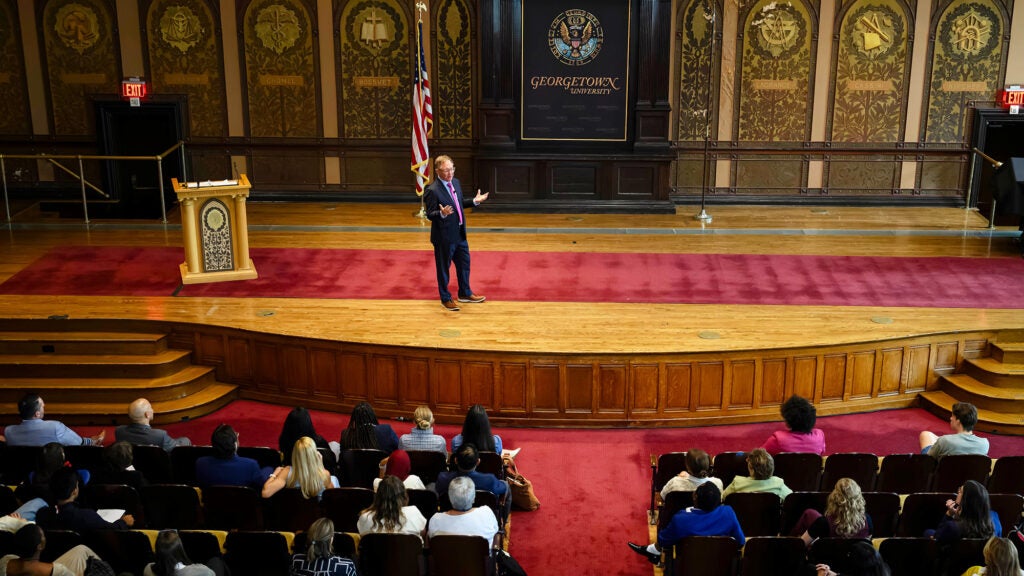
Studer has advocated for shifting the way that people approach their jobs: from a “got to, have to” brain to a “get to” brain.
A Welcoming Approach
Studer pointed to employment statistics to help demonstrate needed change. Approximately 30% of people leave their jobs within the first year, and 44% of those leave within the first 90 days — both expensive and inefficient, he said. Speaking about the importance of “emotional onboarding” to help new employees feel comfortable and happy in their jobs, Studer said people should actively reach out to tell newcomers how welcome they are and reinforce their sense of fitting into their environment.
“All of a sudden, the experienced nurses started sharing how they felt, and you could see the empathy just went up,” he said. “They realized what it was like when they were brand new, and you could see the new nurse realize, ‘You’re just like me. You had that same fear.’ … And that person starts to think, ‘I do fit in. I belong.’”
A self-described “fire starter,” Studer urged others to bring that same passion to their work.
“We’re in a great profession, but that doesn’t mean it isn’t hard, that there aren’t obstacles,” he said. “We’ve got to keep our own fires alive and give our flames to others. It’s the calling we have. Most of the things I have done are to capture the hearts of people. If you capture their heart, the mind and behavior will follow.”
Special Award
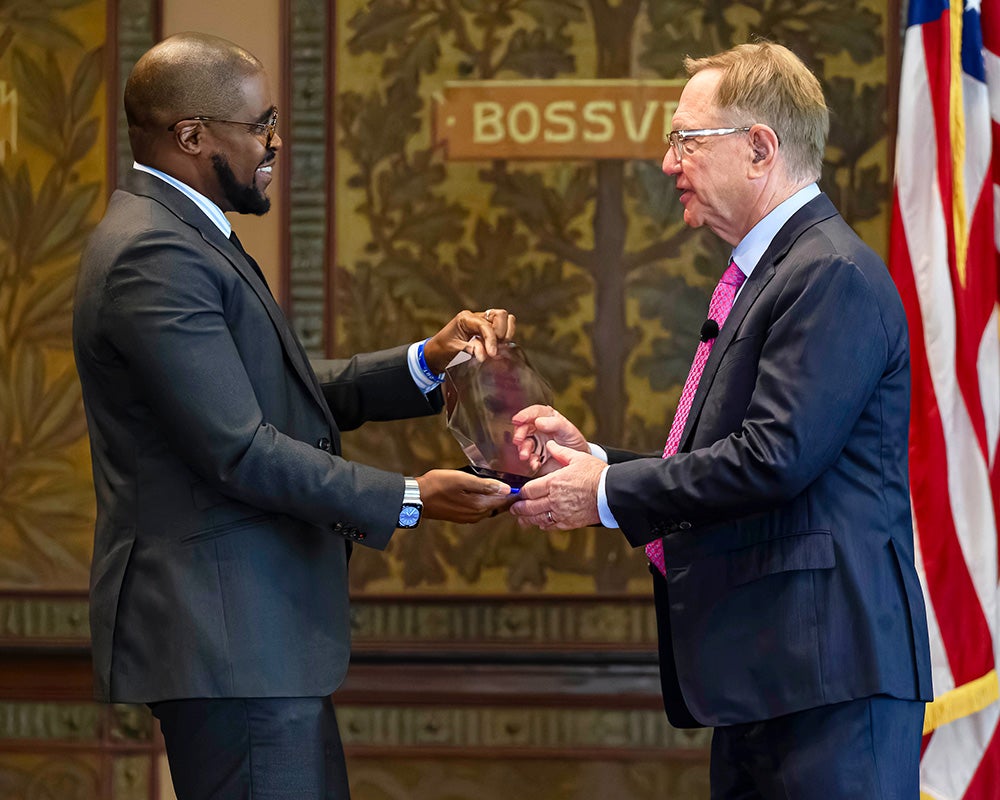
Christopher J. King, PhD, MHSc, FACHE, presented Studer with the Purpose-Driven Leadership Award.
At the conclusion of the lecture, School of Health Dean Christopher J. King, PhD, MHSc, FACHE, recognized Studer with the inaugural Purpose-Driven Leadership Award.
“The core values that have guided your achievements reflect the values that we live and breathe each and every day at this university,” King said. “Being of service to others, tapping into your calling, caring for the whole person and living a purpose-driven life are all instrumental in our commitment to student formation.”

